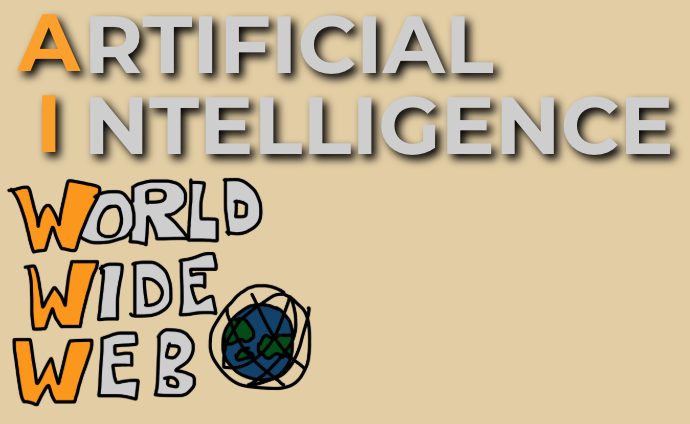AI Under the Hood: What's Advancing & What's Slipping

Hey there Ai5ers,
From model degradation to voice-enabled Claude and the quiet battle over AI regulation, this week’s Ai5 dives into the tension between innovation and oversight.
Happy reading!
Today's Ai5:
-
🧐 General-purpose AI could be getting worse
- 👋 Anthropic debuts Claude conversational voice mode
- 🤓 How knowledge workers can thrive after AI
- 🤨 The Trojan horse inside the big, beautiful bill
- 💰 The battle to AI-enable the web
Prompt of the Day 🎨

Personalized movie poster prompt: Imagine your life is being turned into an epic movie, think blockbuster vibes with a dramatic tagline, cinematic lighting, and bold design. Create a photo-realistic movie poster starring YOU as the lead character. The genre should reflect your personality (action, adventure, sci-fi, romantic comedy, mystery, etc.). Include a title for the movie, a one-liner tagline, and 2–3 fake critic blurbs (“★★★★★ — A thrilling ride!”). The background should hint at a major theme or moment from your life story. You should be dressed in a costume that suits your role—hero, explorer, rebel, genius, etc. The personality types are: The Visionary, The Rebel and The Mentor."
General-pupose AI could be getting worse 🧐

I'm finding that when I search for hard data such as market-share statistics or other business numbers, the results often come from bad sources. Instead of stats from 10-Ks, the US Securities and Exchange Commission's (SEC) mandated annual business financial reports for public companies, I get numbers from sites purporting to be summaries of business reports. These bear some resemblance to reality, but they're never quite right. If I specify I want only 10-K results, it works. If I just ask for financial results, the answers get…
I've done the exact same searches on all the major AI search bots, and they all give me "questionable" results.
Model collapse is the result of three different factors. The first is error accumulation, in which each model generation inherits and amplifies flaws from previous versions, causing outputs to drift from original data patterns. Next, there is the loss of tail data: In this, rare events are erased from training data, and eventually, entire concepts are blurred. Finally, feedback loops reinforce narrow patterns, creating repetitive text or biased recommendations.
Full article by Steven J Vaughan-Nichols
Anthropic debuts Claude conversational voice mode 👋

The new Claude voice mode is said to be rolling out over the next few weeks to all mobile app users, according to Anthropic.
While rival OpenAI has offered a conversational voice mode on ChatGPT since late 2023 and upgraded it significantly several times, Claude’s new conversational mode brings it up to parity and then some, offering features OpenAI does not.
Voice conversations generate full transcripts and voice mode summaries. Additionally, Claude provides visual notes that capture key insights from each discussion, giving users an easy way to review and revisit important points.
How knowledge workers can thrive after AI 🤓

As AI advances toward expanded capabilities, knowledge workers (think of jobs like software engineers) are confronting not just job loss, but the deeper question of what makes them matter.
The psychological effects are real. A behavioral study published in Harvard Business Review found that, while workers became more productive using AI tools, they also reported feeling less motivated and more bored when transitioning to tasks that did not involve the technology.
The future belongs not to those who resist this shift, but to those who meet it by deepening their understanding of what made them human in the first place. Migration is always disorienting, but also a path to new belonging.
The Trojan horse inside the big, beautiful bill 🤨

Buried in Section 43201(c) of the 1,118 page budget bill (Trump's big beautiful bill) is one little sentence: “Subsection (c) states that no state or political subdivision may enforce any law or regulation regulating artificial intelligence models, artificial intelligence systems, or automated decision systems during the 10-year period beginning on the date of the enactment of this Act.”
What incredible mischief that one little sentence produces.
It is clear that our tech overlords would like nothing better than to be unfettered in pursuit of their objectives for AI, regardless of any harm that might come to Americans from that pursuit. As one commentary by J.B. Branch and Ilana Beller put it, “The provision is a message to the states: Sit down and shut up while Big Tech writes its own rules or continues to lobby Congress to have none at all.”
Full article by Valerie Hudson
The battle to AI-enable the web 💰

In the first generation of the web, back in the late 1990s, search was okay but not great, and it wasn’t easy to find things. That led to the rise of syndication protocols in the early 2000s, with Atom and RSS (Really Simple Syndication) providing a simplified way for website owners to make headlines and other content easily available and searchable.
In the modern era of AI, a new group of protocols is emerging to serve the same basic purpose. This time, instead of making sites easier for humans to find, it’s all about making websites easier for AI.
AI is going to interact with your site, and you need to AI enable it. NLWeb is one way that will be particularly attractive to publishers, much like RSS became a must-have for all websites in the early 2000s.
Full article by Sean Michael Kerner
Snack Sized 5 🍪
1️⃣ Short: What if AI characters refused to believe they were AI (Reddit)
2️⃣ Workflow Optimization with AI Productivity Tools (Medium)
3️⃣ WhatTheBeat: find the meaning of your favorite songs? (Easy With AI)
4️⃣ How Active Inference is Redefining the Very Definition of AI (Medium)
5️⃣ Why being funny is AI's toughest test (Mashable)
If you aren't getting Ai5 delivered to your email box, subscribe here:
📢 Help us grow by sharing Ai5 with a friend! 📢
If you have any special requests, email us at [email protected].
© 2025 Prompting Intelligence. All rights reserved.







Responses